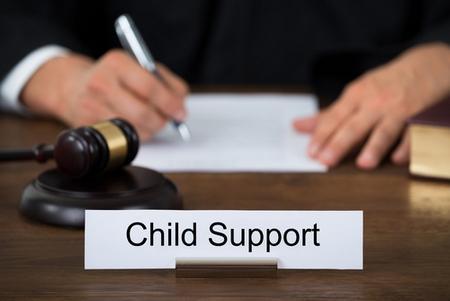630-462-9500
After Hour New Client Telephone Number 630-690-6077
1776 S. Naperville Road, Building B, Suite 202,
Wheaton, IL 60189
Recent Blog Posts
What Are Some Healthy Coping Strategies for My Illinois Divorce?
 According to the Holmes Rahe Stress Inventory, divorce is the second most stressful life event a person can experience. Only the death of a spouse is considered more emotionally traumatic than the end of a marriage. If you are going through a divorce, you may feel depressed, confused, enraged, or even completely numb. While there is no way to completely eliminate the emotional pain associated with divorce, mental health experts do have some advice for how to cope with divorce in a healthy, effective way.
According to the Holmes Rahe Stress Inventory, divorce is the second most stressful life event a person can experience. Only the death of a spouse is considered more emotionally traumatic than the end of a marriage. If you are going through a divorce, you may feel depressed, confused, enraged, or even completely numb. While there is no way to completely eliminate the emotional pain associated with divorce, mental health experts do have some advice for how to cope with divorce in a healthy, effective way.
Do Not Judge Yourself for Your Feelings
Divorce is different for everyone who goes through it. It is very likely that you will not experience divorce in the same way as your friends or family members. Because of this, it is important not to judge yourself for your reaction to the divorce. You may be consumed with anger and resentment toward your soon-to-be-ex-spouse, or you may miss them terribly. You may feel relieved about the end of the marriage, or you may be devastated that your attempts at reconciliation have failed. You may be emotionally numb and feel almost nothing at all. Whatever your response to the trauma of divorce, know that your feelings are normal and that the emotional pain will decrease with time.
How Is the Income Shares Model Used to Determine Child Support in Illinois?

If you are a parent considering divorce, you may wonder how the state calculates child support payments. Which parent receives the support payments? How is child support related to the allocation of parental responsibilities and parenting time? Illinois uses an “income shares” method to formulate child support orders which are reasonable and appropriate for the financial circumstances of both parents. Read on to learn about the most important elements of Illinois child support orders and what you can do if you need to establish or modify child support in Illinois.
Illinois Recently Changed the Way it Determines Child Support
Significant changes to the Illinois Marriage and Dissolution of Marriage Act (IMDMA) went into effect in July 2017. Before the changes, child support was determined by applying a certain percentage to the paying parent's net income based on the number of children needing support. For example, a parent with one minor child paid 20 percent of his or her income, and a parent with two children paid 28 percent of his or her income in child support. Child support orders that went into effect before the changes to the IMDMA may still be based on the old calculation method. However, child support orders may be eligible for modification if they meet certain criteria.
How to Maximize the Benefits of Your Illinois Parenting Agreement
 Being a parent is one of the hardest jobs in the world. Cooperatively raising a child with an ex-spouse or former partner can be even harder. If you are a divorcing or unmarried parent who plans on sharing parental responsibility with your ex, you probably have many concerns about how a joint custody arrangement will work out. Effective co-parenting takes patience, perseverance, and planning. One of the best ways to prevent disagreements and problems in a co-parenting scenario is to have a solid strategy for how you plan to share parental responsibilities and parenting time.
Being a parent is one of the hardest jobs in the world. Cooperatively raising a child with an ex-spouse or former partner can be even harder. If you are a divorcing or unmarried parent who plans on sharing parental responsibility with your ex, you probably have many concerns about how a joint custody arrangement will work out. Effective co-parenting takes patience, perseverance, and planning. One of the best ways to prevent disagreements and problems in a co-parenting scenario is to have a solid strategy for how you plan to share parental responsibilities and parenting time.
Illinois Requires Parents to Create a Parenting Plan
If you are getting divorced in Illinois and wish to share parenting time with your spouse, you are required to submit a parenting plan to the court. Ideally, you and your spouse can agree to a plan, but if you cannot agree, the court will intervene and decide what should be included in the official parenting agreement. This plan will assign important decision-making responsibilities (formerly called child custody) and parenting time (formerly called visitation) to each parent. Additionally, the parenting plan must contain provisions which address:
Warning Signs of Financial Fraud During Divorce

Marriage is just as much a financial union as it is a romantic partnership. When a couple marries, their debts and assets become deeply intertwined in a variety of ways. Undoing this financial entanglement during divorce can become quite complicated – especially for couples with complex assets or a high net worth. In some cases, a divorcing spouse may attempt to deceive his or her partner regarding the couple's assets and income. Financial fraud is a common issue that anyone getting divorced should be aware of.
Financial Fraud Is Common When One Spouse Has Total Control over Finances
Some married couples share responsibility for financial decision-making and money management. In other cases, one spouse has sole responsibility over the finances, while the other is completely uninvolved in financial decisions. While this division of labor works well for some couples, being in the dark about one's assets and debts can put a person at a significant disadvantage during divorce. However, spouses who were not involved in household finances are not the only people who can find themselves victims of financial fraud during divorce. Even if you were heavily involved in paying household bills, making purchases, and completing other financial transactions, it is still possible to be deceived by an untruthful spouse.
What Do Domestic Violence Victims Need to Consider During Divorce?
 According to the National Coalition Against Domestic Violence, an astounding 10 million men and women are victims of intimate partner abuse every year in the United States. Data shows that about 20 people per minute are abused by a boyfriend, girlfriend, or spouse in the U.S. Anyone who has been a victim of domestic violence knows just how terrifying and overwhelming the experience can be. Domestic violence or abuse can also have a tremendous impact on divorce proceedings. If you are considering divorce, and you have been mentally, emotionally, or physically abused by your spouse, there are several issues you need to be aware of.
According to the National Coalition Against Domestic Violence, an astounding 10 million men and women are victims of intimate partner abuse every year in the United States. Data shows that about 20 people per minute are abused by a boyfriend, girlfriend, or spouse in the U.S. Anyone who has been a victim of domestic violence knows just how terrifying and overwhelming the experience can be. Domestic violence or abuse can also have a tremendous impact on divorce proceedings. If you are considering divorce, and you have been mentally, emotionally, or physically abused by your spouse, there are several issues you need to be aware of.
Negotiation and Mediation May Not Be Appropriate in Situations Involving Domestic Abuse
Generally, couples getting divorced are encouraged to work out issues related to child custody, property division, and spousal support on their own or with help from a qualified mediator. However, when there is an imbalance of power between the spouses or a history of domestic violence, this may not be appropriate or even possible. It is highly encouraged that you speak with an experienced family law attorney if you are getting divorced and have been abused by your partner. Your attorney can help you understand your legal options and choose the course of action which is best for your unique situation. If you worry about the effect that your partner's abuse has or will have on your children, your lawyer can also help you determine the steps you can take to protect your children's safety, including requesting sole custody or requiring that your ex-spouse's parenting time be supervised.
How to Tell Your Children That You Are Getting Divorced

If you are a parent who is considering divorce, you probably have many concerns about how your children will take the news of the split. Children may remember the moment that they learned their parents are getting divorced for the rest of their lives. Therefore, it is important to minimize the emotional trauma caused by this conversation as much as possible. The good news is that there are many resources available to parents that can help them talk to their children about divorce in a healthy, productive manner. There is no perfect way to tell your children that you are getting divorced, but experts have some tips to help make the discussion go as smoothly as possible.
Tell the Children All at Once
Child development experts suggest that parents break the news of the divorce to all the children at once. If you have children of varying ages, you may assume that it would be better to tell the oldest children before the youngest children. However, psychologists suggest that telling some children before the others may cause more problems than it prevents. This may make children feel like they have to keep secrets, which can be especially burdensome during an already tumultuous time.
Will I Receive Spousal Maintenance if I Am a Stay-at-Home Parent?

If you are getting divorced and earn a lower income than your spouse, you probably have many concerns about finances. Making ends meet on a single income can be a daunting prospect. This is especially true if you have been out of the workforce for many years because you were raising your children. Spousal support, also called maintenance or alimony, may offer the financial relief you desperately need. However, only individuals meeting certain criteria will be eligible for spousal support in Illinois.
When Is Alimony Awarded in Illinois?
Not every person who gets divorced will qualify for spousal maintenance. The courts typically only award a spouse maintenance if it is “reasonable and necessary.” There are many factors considered by Illinois courts when deciding whether or not maintenance is appropriate. These include but are not limited to:
-
How long the marriage lasted
How Social Media Can Influence Your Illinois Divorce

Social media websites like Facebook, Instagram, Twitter, Tumblr, and Reddit have become an integral part of many Americans' lives. In fact, one study shows that about 70 percent of all U.S adults actively use Facebook to keep up with friends and family. Because of this, social media accounts are becoming increasingly influential in divorce cases. What you post on your Facebook page can affect issues such as child custody, spousal maintenance, child support, and more. If you are ending your marriage, read on to learn about how your online activity can be used against you during divorce and how to take steps to protect your privacy.
Online Activity Can Affect Child Custody Decisions
What you do and say online can directly affect your divorce. Many people ending a marriage have intense feelings of resentment towards their spouse. While these feelings are understandable, you should avoid venting these frustrations online. Posting disparaging things about your spouse online could possibly damage your credibility and influence the court's opinion of you.
3 Co-Parenting Tips to Help Reduce Stress During and After Divorce

If you are a parent who is considering divorce, or if you have already started the process of ending your marriage, you probably have concerns about how you will share parental responsibilities and parenting time with your ex-spouse. Understandably, it can be very difficult for newly-divorced parents to jointly raise their children. It takes a great deal of teamwork, patience, and creativity to find a co-parenting strategy that works for your unique family situation. Fortunately, experts have several pieces of advice that may help divorced parents share parenting roles in a way that decreases stress for everyone.
Embrace Technological Assistance
There are a good number of applications, websites, and other resources that divorced parents can benefit from. Some parents find that sharing a Google calendar can help them stay on track with parenting time schedules. Others use an app such as Cozi, Coparently, or OurFamilyWizard to organize parent and child schedules, keep track of school events, share information about expenses, and more. Often, the most difficult part of co-parenting is communicating with your ex. Using technology to connect can make the process easier and more organized.
How Can I Change My Child Support Obligation?

Child support ensures that unmarried or divorced parents share the financial responsibilities of raising a child. Illinois courts calculate child support payments using the "income shares" model, and the amount of child support to be paid is based on the income of both parents, the amount of parenting time each parent has, and a number of other factors. If either parent wishes to change the child support order once it has been entered, he or she must petition to court to make this change.
Requesting a Child Support Modification
Illinois child support orders can only be modified under certain circumstances. Child support orders are eligible for a modification review every three years. Parents can also request a modification if they can prove that a major change in circumstances necessitates the modification. Illinois courts have broad discretion to decide what constitutes a substantial change in circumstances. Some of the most common reasons that parents request a child support modification include:




















